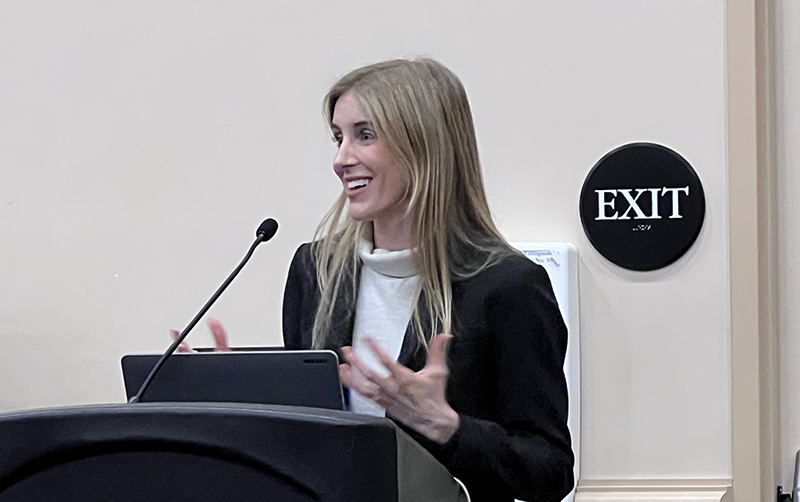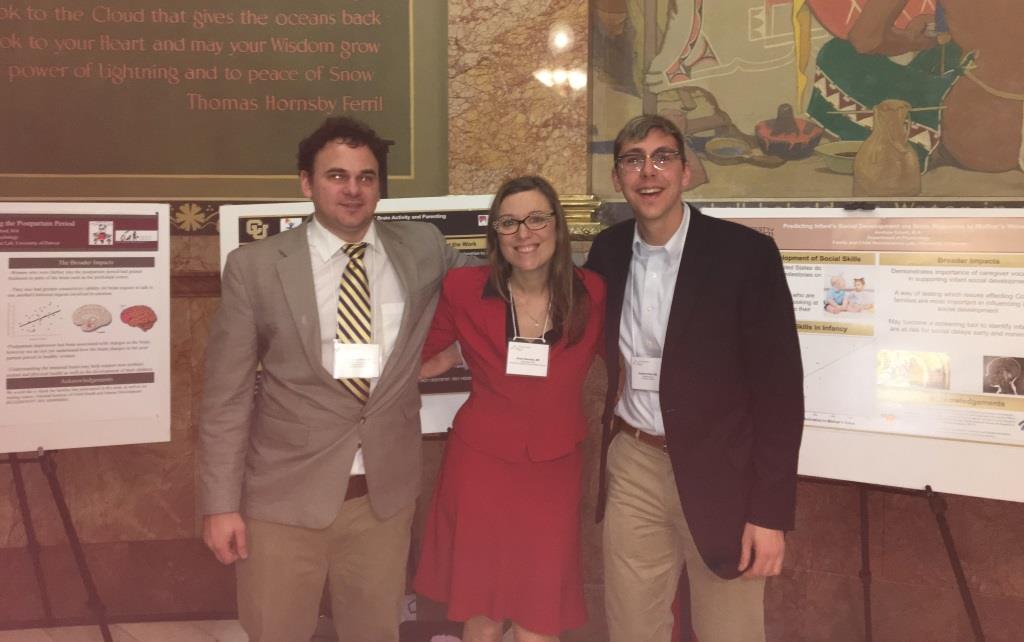Our research has been featured in local and national news publications, in a series of webinars and in our annual newsletters.
-
How motherhood changes the brain
This BBC video in a series called A Mother's Brain features Pilyoung Kim.
Watch the Video
-
Stress and the Maternal Brain
Pilyoung Kim, PhD, is a guest on this episode of the podcast Mommy Brain Revisited, speaking about how life and economic stress affect mother and child's early experiences.
Listen to the Podcast
-
University of Denver Study Examining Impact of Marijuana on Pregnant Women, Fox 31 News
This video and article highlights recent research from the FCN Lab within the context of marijuana use and risk among pregnant women.
Read More
-
How Men's Bodies Change When They Become Fathers
This New York Times article cites MRI research from Pilyoung Kim and the FCN lab, mapping how fathers' brains change in the first 16 weeks after their baby is born.
Read More
-
Does Having a Baby Really Make It Harder to Concentrate? The Wall Street Journal
This article highlights research by Pilyoung Kim and the FCN Lab as it explores the ways women's brains develop during the stage commonly referred to as "mommy brain."
Read More
-
What Happens To a Woman's Brain When She Becomes a Mother, The Atlantic
Building from research from the FCN Lab, this piece highlights their research into changing parental brains in the context of other recent studies.
Read More
-
The Post-Natal Mind
Pilyoung Kim, PhD, was a guest on this episode of the radio program All in the Mind.
Read More
-
Is It OK to Smoke Weed While Pregnant? New DU Study Takes a Closer Look, DU Newsroom
Seeking to answer a question many pregnant mothers raise, this article highlights a current study developed by a research team including faculty and students from the FCN lab.
Read More
-
The Parental Brain: How Parenthood Shapes the Adult Brain, Life Course Research Network (LCRN) Webinar
Pilyoung Kim, PhD, offered this lecture on the plasticity of the parental brain and the many changes that the brain undergoes as parents begin adapting to their new roles.
Watch Webinar
-
How Socioeconomic Disadvantages Get Into the Brain Across the Lifespan, Life Course Research Network (LCRN) Webinar
This webinar by Pilyoung Kim, PhD explores the ways socioeconomic status impacts the brain, when it does so in the lifespan and the best times to intervene in this process.
Watch Webinar
-
How Poverty Changes a Mother's Brain and Her Baby's As Well, CPR News
This piece extensively highlights the Family and Child Neuroscience Lab's research into the relationships between poverty, everyday stress and brain development for mothers and infants.
Read More
-
Here's What Happens to Men's Hormones As They Prep For Fatherhood, Global News
This article cites Pilyoung Kim, PhD, and the FCN Lab's research into changes in new fathers' brains, including the shifts in hormone levels that accompany these changes.
Read More
-
Mother's Day: How Motherhood Changes a Woman's Brain, Global News
This article discusses Pilyoung Kim's own experiences with motherhood and the results of her research indicating that reward centers grow as a mother interacts with her baby.
Read More
-
Stress of Childhood Poverty May Have Long Effect On Brain, Bloomberg
Exploring the relationship between poverty and brain development, this piece cites research on early childhood stress and brain plasticity from Pilyoung Kim and the FCN lab.
Read More
-
The Real "Mommy Brain": New Mothers Grew Bigger Brains Within Months Of Giving Birth, American Psychological Association
This article cites research Pilyoung Kim, PhD, published while she was with the National Institute of Mental Health, exploring the ways gray matter development increased in new mothers.
Read More
-
Babies get the limelight, but what happens to mothers’ brains after birth?
Pilyoung Kim was interviewed in this article from UNC Annenberg's Center for Health Journalism.
Read More
-
Postpartum Anxiety Doesn't Get the Attention It Deserves Since Moms Assume It's Normal to Worry
This Good Housekeeping article quotes Pilyoung Kim, PhD, as she talks about new mothers' uncontrollable, anxious thoughts.
Read More







